When choosing a generator for your home, you'll need to decide on the type of fuel to use. Two generator types you can select are dual-fuel and gas. If you're wondering which is better among them, keep reading. We researched this question and have information to share.
A dual-fuel generator allows you to use gas or propane fuel. With this type of generator, you get more fuel efficiency and flexibility during extended power interruptions. A gas inverter generator is cost-effective and uses one type of fuel.
Both generator types have their pros and cons. Read further for more details on the two generators to see which fits your needs.
Dual-Fuel Or Gas Inverter: Which Generator Is Better?
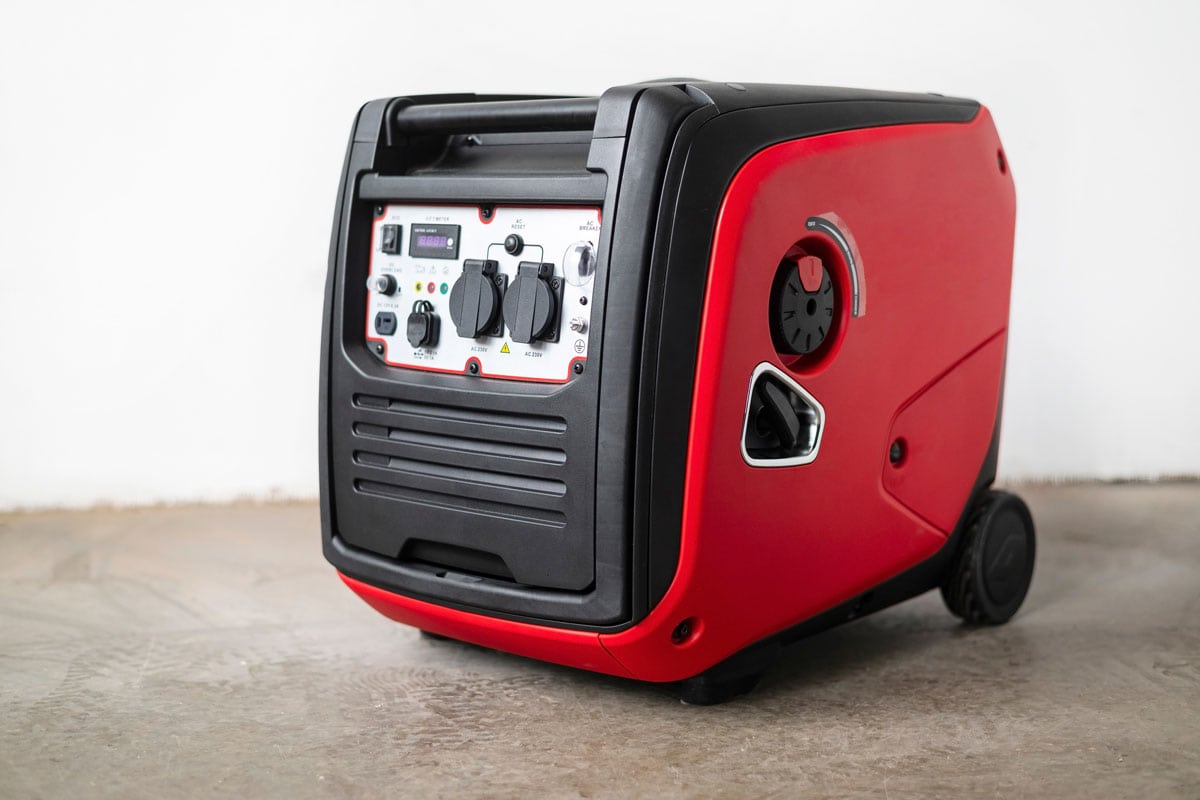
Inverter generators, such as dual-fuel or gas types, can provide continuous power during extended power outages. During an outage, the electric current will change from AC to DC and back to AC.
This type of generator is suitable for homes because of its compact size and lack of noise. Inverter generators are also efficient. If you are eco-conscious, inverter generators have eco-friendly features.
Keep in mind that they can only power 120-volt outlets and are best for charging small, battery-operated devices. In terms of power, they produce less than traditional generators. Inverter generators can also be expensive, but fuel costs are lower because of their energy efficiency.
In this post, we're focusing on two inverter generators: dual-fuel and gas.
Dual-Fuel Generator: Pros and Cons
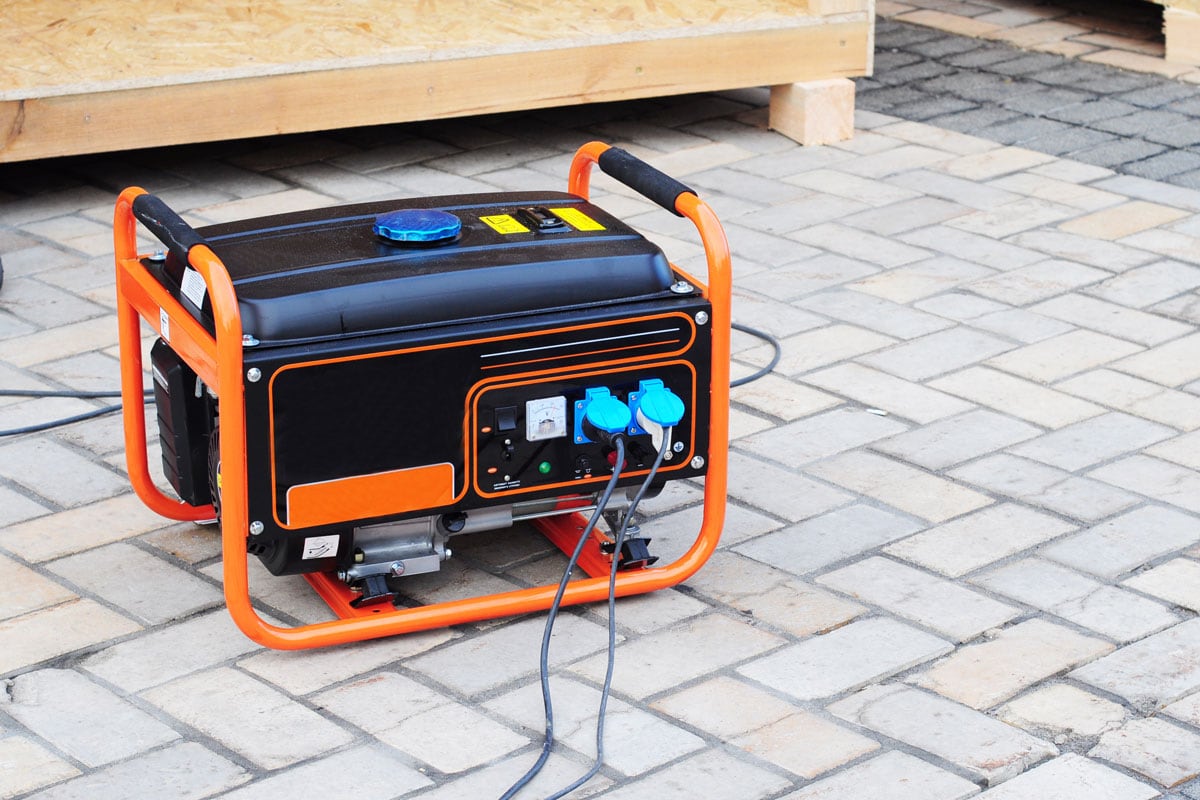
A dual-fuel generator allows you to use two fuel sources. You can use the following fuel options:
- Diesel
- Gasoline
- Natural gas
- Propane
With this type of generator, you can manually or automatically change the fuel required. Without depending on only one fuel source, you can get continuous power for more extended power outages.
You can use a dual-fuel generator as a backup for solar and battery power sources. In that way, your power will not run out. The power capacity of dual-fuel generators is 5,000 to 12,500 watts or higher.
To better understand this generator, check out its pros and cons.
Pros
- Flexibility: The generator is flexible on the type of fuel used. You can use a combination of gas and propane or diesel and natural gas. Diesel can help in the ignition, while gas can power the engine. There is less dependency on one fuel.
- Increased fuel efficiency: With the right fuel, the generator can work longer with fewer refills, saving you money on fuel costs.
- Environmentally friendly: Compared to a single-fuel generator, some dual-fuel generators produce fewer greenhouse gas emissions due to their highly efficient engines and the type of fuel used.
Cons
- Weight: Dual-fuel generators are heavier than some other types. If you use propane, you must connect the generator to the tank.
- Cost: The price of this generator is higher than that of a gas fuel generator because of its advanced features.
- Best used for high-supply needs: Running a dual-fuel generator is costly, so it may not be best for small-scale power requirements. This generator is best for industrial use.
- Complexity: A dual-fuel generator can be confusing to operate. If you buy one, refer to the manual or the manufacturer's customer service on how to use the unit.
- More maintenance: When using two fuel sources, you need regular checks and cleaning to keep the engine and fuel tanks in good condition. Also, you must store the fuel properly to avoid depletion and fires.
A dual-fuel model is a good choice if you have access to different fuel sources. With the right use and maintenance, it can meet industrial needs.
Gas Inverter Generator: Pros and Cons
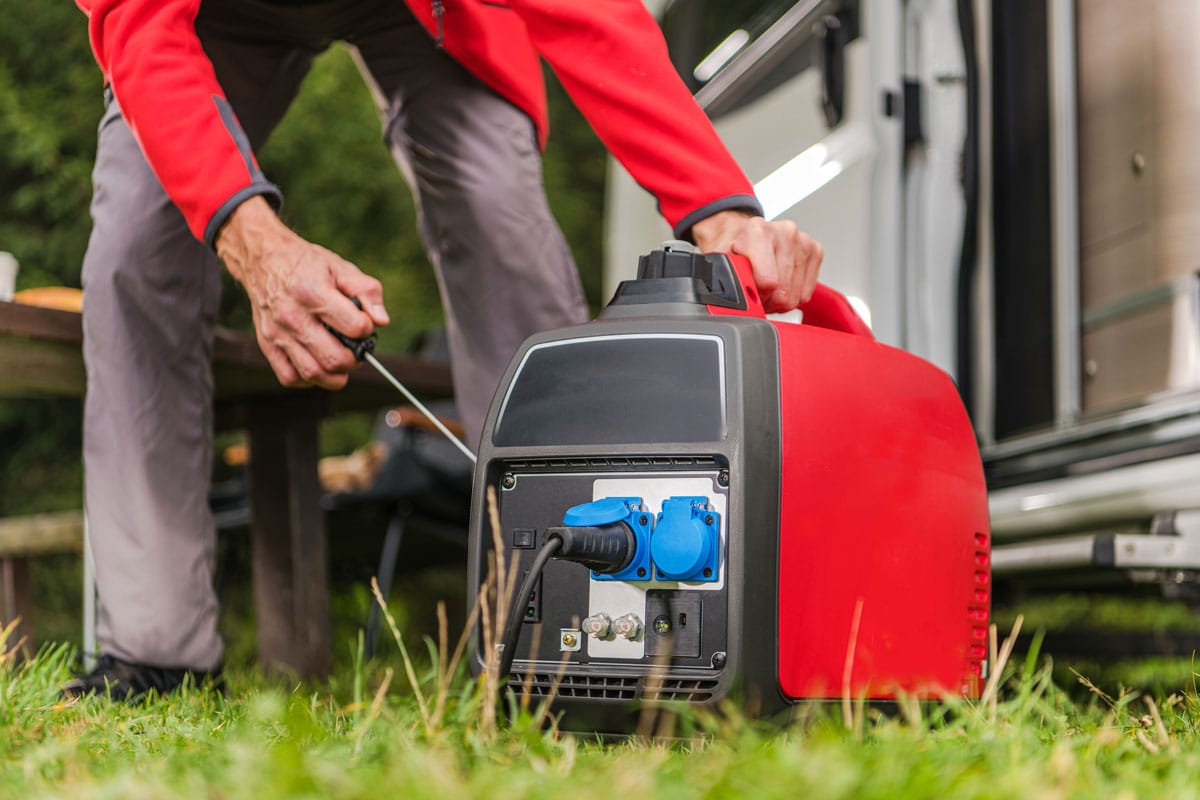
A gas inverter generator is similar to dual-fuel because it converts DC to AC and vice versa. This type only uses gas, which is reliable and readily available.
Gas inverter generators are suitable for residential and commercial use. The power wattage is around 1,000 to 4,000 watts, which is lower than dual-fuel generators.
Before you choose this generator, check out the pros and cons.
Pros
- Cost-friendly: A gas generator is relatively cheap and cost-effective because it only uses one fuel type. It is a good choice for households.
- Fuel availability: You can easily get gas from gas stations and stores.
Cons
- Storage: Gas needs a stabilizer because it can degrade in a few months. You can incur additional costs for storage. Also, you need to comply with your local fire codes on storing gas in your home.
- More maintenance: You must clean the generator regularly because gas is corrosive and can leave residue.
- Accessibility: When the power is out in your area, you may not be able to get gas from a gas station because gas pumps require electricity.
- High carbon emissions: Gas has the least environmental impact among generator fuel sources, but its CO2 emissions can greatly affect the environment.
- Fire hazard: Gas is combustible and a fire hazard if not used and stored properly.
Even if a gas inverter generator has more cons than pros, it can still effectively do its job. Select this generator for home and recreational use.
Factors To Consider When Choosing A Generator
Now that you know the pros of cons of both generator types, you can narrow down your choice by considering the following factors:
- Fuel efficiency
- Fuel type
- Generator size (in kW)
- Modular capability (i.e., has functions similar to a power plant)
- Control and power management systems
- Portability and mobility
You can read the generator specifications to decide which suits your requirements.
How Much Do Inverter Generators Cost?
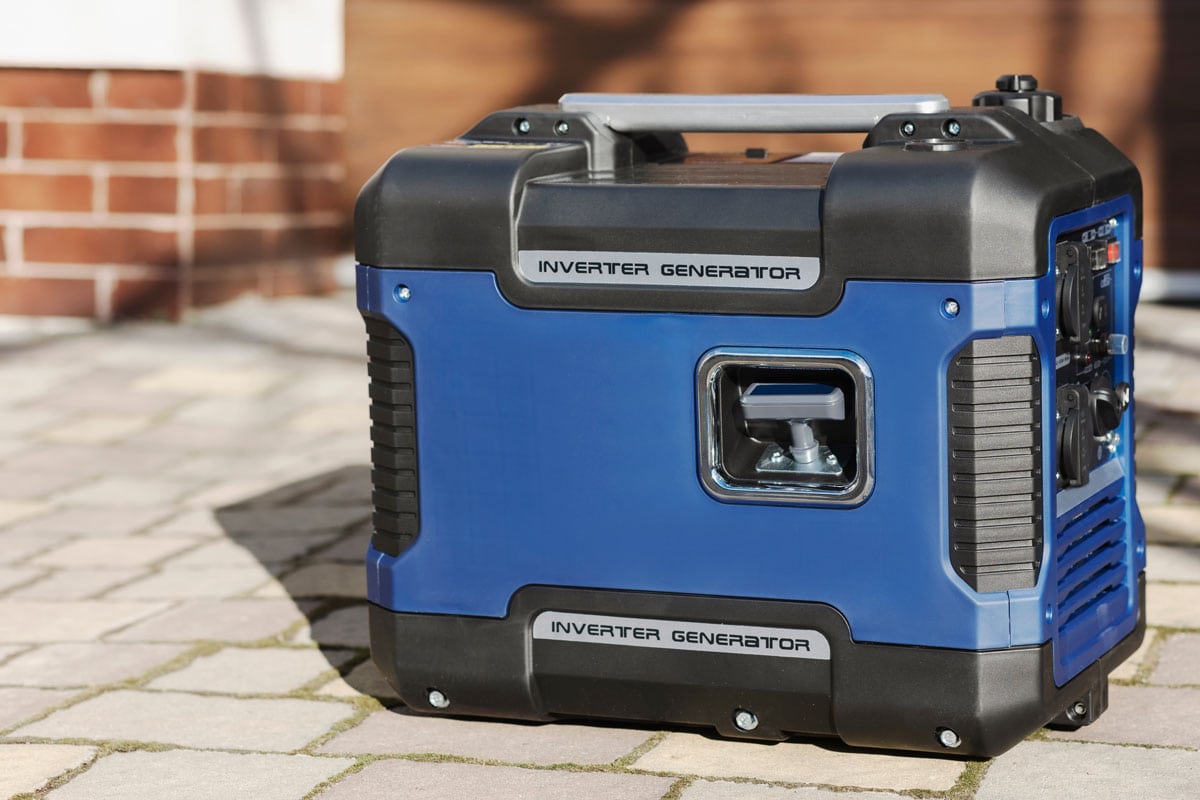
Cost is a major factor to consider when purchasing a generator, especially an inverter type. You want the best investment for a backup power source if there are frequent outages in your area.
Dual-fuel generators are more expensive than gas inverters. The price ranges from $400 to $30,000, depending on power wattage. Also, you will spend more because you need two kinds of fuel. Among the four fuel options, natural gas is the most expensive, and propane is the least.
See this dual-fuel generator on Amazon.
Meanwhile, gas inverter generators are cheaper, costing around $500-$2,500. Gas is also affordable, so using this generator is economical.
Check out this gas inverter generator on Amazon.
Generator size varies based on kilowatts and coverage. The larger the area, the bigger the size required. Accordingly, the bigger generator will cost more. Check the power requirements of the area to find the right generator with the right price.
How To Maintain An Inverter Generator
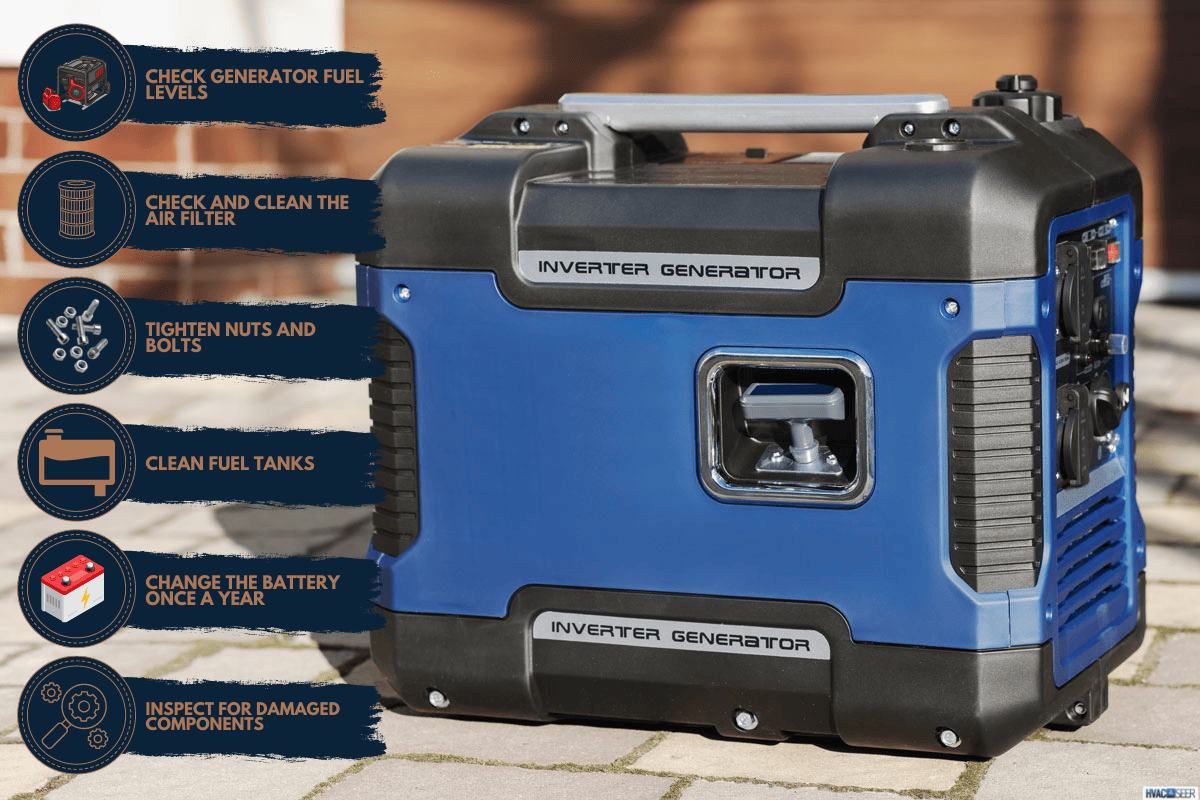
An inverter generator requires less maintenance because it is fuel-efficient. There is less residue. Also, changing generator components, such as carburetor and gaskets, are not frequent.
The generators are low-maintenance, and you can maintain their efficiency and output by following the tips below:
- Check generator fuel levels
- Check and clean the air filter
- Tighten nuts and bolts
- Clean fuel tanks to remove debris and residue
- Change the battery once a year
- Inspect for damaged components and replace them as soon as possible
By following the tips above and maintaining your generating, you can ensure that it will not let you down during power outages.
In Summary
Dual-fuel and gas inverter generators are both good choices for backup power sources during power outages. Both are fuel-efficient. You can choose one to provide power for your home, recreational, or industrial needs.
Dual-fuel generators allow you to be flexible with the fuel source for continuous power. However, they are more expensive and complex to operate. Gas inverters are single-fuel generators that are cost-effective. The downsides of gas inverters are residue in the tank and high CO2 emissions.
With some factors to consider, you should carefully select the generator that aligns with your needs.
If you found this article helpful, you might like these posts about generators:



Amazing piece of content, Thanks for putting everything under one roof!